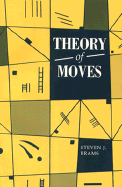Book contents
- Frontmatter
- Contents
- List of figures
- Acknowledgments
- Introduction
- 1 Rules of play: the starting point matters
- 2 The anticipation problem: there may be no resolution
- 3 Magnanimity: it sometimes pays
- 4 Moving power: breaking the cycle
- 5 Order and threat power: eliminating indeterminacy and communicating intentions
- 6 Information in games: misperception, deception, and omniscience
- 7 Incomplete information in larger games: a model of negotiations
- 8 Summary and conclusions
- Appendix
- Glossary
- Bibliography
- Index
7 - Incomplete information in larger games: a model of negotiations
Published online by Cambridge University Press: 01 June 2011
- Frontmatter
- Contents
- List of figures
- Acknowledgments
- Introduction
- 1 Rules of play: the starting point matters
- 2 The anticipation problem: there may be no resolution
- 3 Magnanimity: it sometimes pays
- 4 Moving power: breaking the cycle
- 5 Order and threat power: eliminating indeterminacy and communicating intentions
- 6 Information in games: misperception, deception, and omniscience
- 7 Incomplete information in larger games: a model of negotiations
- 8 Summary and conclusions
- Appendix
- Glossary
- Bibliography
- Index
Summary
Introduction
In section 1.4 I suggested that the moves and countermoves of TOM might be thought of as modeling a bargaining process, in which states are either accepted (no move occurs) or rejected (move occurs); if the latter, the process moves on. Although this interpretation could be developed further, I take a different approach to modeling moves in games in this chapter, retaining some ideas of TOM but relinquishing others in order to develop a model of negotiation applicable to larger games.
Information in larger games, especially with more players, is likely to be harder to come by and utilize effectively. In addition, as I showed in chapter 6, the effects of information may be double-edged, sometimes benefiting players while at other times hurting them. An appreciation of this double-edged effect has ramifications for learning. In particular, because information is generally costly to acquire, it is useful to know when it may be worthwhile to do so.
For example, when new information dictates changing course, players may find it rational to backtrack, or reverse the direction of their moves, in games. Although backtracking is prohibited by the rules of TOM, it can be accommodated within TOM by making play of a game a function of the information players have about it at different times.
Information
- Type
- Chapter
- Information
- Theory of Moves , pp. 183 - 206Publisher: Cambridge University PressPrint publication year: 1993
